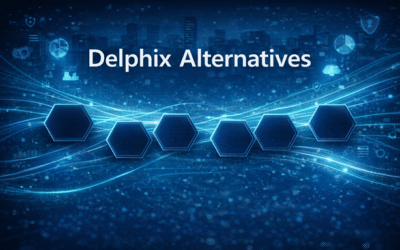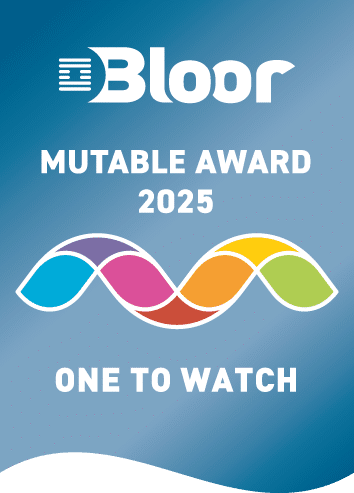The Test Environment Management Plan Template
Two Questions
Two question we often get asked at Enov8 is where does one begin and/or can you provide a good example. In response to the first question, where does one begin we often point them back to two key reference points.The IEEE’s recommended minimum standard for process for Configuration Management.
An overarching guideline for Test Environment Maturity.
Firstly, because at the heart of Test Environment Management is Configuration Management. There is no getting away from it, the heart of good TEM is Identification, Managements, Status Accounting & Audit. And secondly TEM is more than simply Configuration Management, TEM has associated “nuances” that move into the wider world of Agile, ITSM & ITOM. In response to the second, can we provide a good example we often scratch our head 🙁 … You see, the problem with providing an example is there are not many good samples of a Test Environment Plan available online. In fact, it is often hard enough to find “good” Configuration Management Plans, and people have been writing these since the seventies. So, with that in mind, we decided to put together a template (a simple guideline) that other people can follow and leverage. A template that shares many of the structural elements you might expect to find in a Configuration Management Plan, but with an extra twist aligned to the IT & Test Environment Management Maturity Index.Example TEM Plan Template Structure
Test Environment Management Plan (Light Version)1 Introduction
Tip: Initial TEM introduction, scoping & context. 1.1 Purpose of the TEM Plan 1.2 Scope of Document Tip: In addition to TEM process we suggest you describe at a high level, your Test Environment(s) your supporting here. 1.3 Definitions, Acronyms and Abbreviations 1.4 Document References 1.5 Document Overview2 The TEM Team Structure
Tip: High Level overview of TEM team structure & enablers. 2.1 Organisation 2.2 Responsibilities 2.3 Tools & Infrastructure3 The TEM Process
Tip: Define how each primary process will be realized (think People, Process & Tools) 3.1 Knowledge Management Refer: Mapping your Environments. 3.2 Demand Management 3.3 Planning & Coordination 3.4 Service Management 3.5 Data Operations 3.6 Application Operations 3.7 Infrastructure Operations 3.8 Status Accounting & Reporting4 Plan Outcomes
Outline the primary benefits of implementing this Test Environment Management plan. For example: The intention / benefits of implementing this plan can be summarized as follow:- End to End visibility of Test Environments
- End to End Visibility of Activity
- Operational Standardization
- Increased DevTest productivity
- Reduced Environment Incidents / Disruption
- Accelerated IT Project Delivery
- IT Cost Optimization / Controlled Spend i.e. spend based on need & usage.
5 Implementation Project Plan
Tip” Describe how we will get there. 5.0 Project Resources 5.1 Delivery Milestone Plan 5.2 Actor Training Plan 5.3 Optimization Plan6 Appendix
A Concise Download Version
For a more concise version of above (with section explanations) please download our PDF example.Post Authoring Review
Happy with your document and/or new processes?- Hold regular retrospectives with stakeholders & team members to get ideas for improvement.
- And use our online EMMI calculator to compare it against the EMMI methodology.
Relevant Articles
A Data Loss Prevention Security Checklist for Enterprise
Companies today are collecting more data than ever and using analytics to influence everything from sales and marketing to research and development. In fact, data is now one of the most valuable assets that a company can own. Yet while data is more important...
Enterprise Architecture Principles: 13 for Resilience
Modern enterprises operate in environments defined by constant change. Cloud adoption, regulatory pressure, cybersecurity threats, distributed teams, and accelerating release cycles all increase the complexity of the IT landscape. In this environment, resilience is no...
Duck Creek Data Masking in Depth: A Guide
Insurance platforms are data-heavy by design. Customer identities, policy records, payment details, underwriting notes, claims histories. In a Duck Creek ecosystem, that data powers critical business processes across policy, billing, and claims. It also creates...
What is a Microservice Catalog? A Detailed Explanation
Microservices have revolutionized the way modern software systems are designed and developed. Breaking down complex applications into smaller, independently deployable services brings numerous benefits in terms of scalability, flexibility, and maintainability....
Delphix Alternatives: 7 to Consider in 2026
If you’re searching for delphix alternatives, you’re likely evaluating your test data management strategy. Delphix is widely recognized for data virtualization and masking, but it is not the only option available. As enterprise environments grow more complex and...
Enterprise Release Manager: A Guide to the Role
Do you want your company to scale efficiently? Look for an enterprise release manager (ERM). An ERM protects and manages the movements of releases in multiple environments. This includes build, test, and production environments. They ensure that there is a proper...









